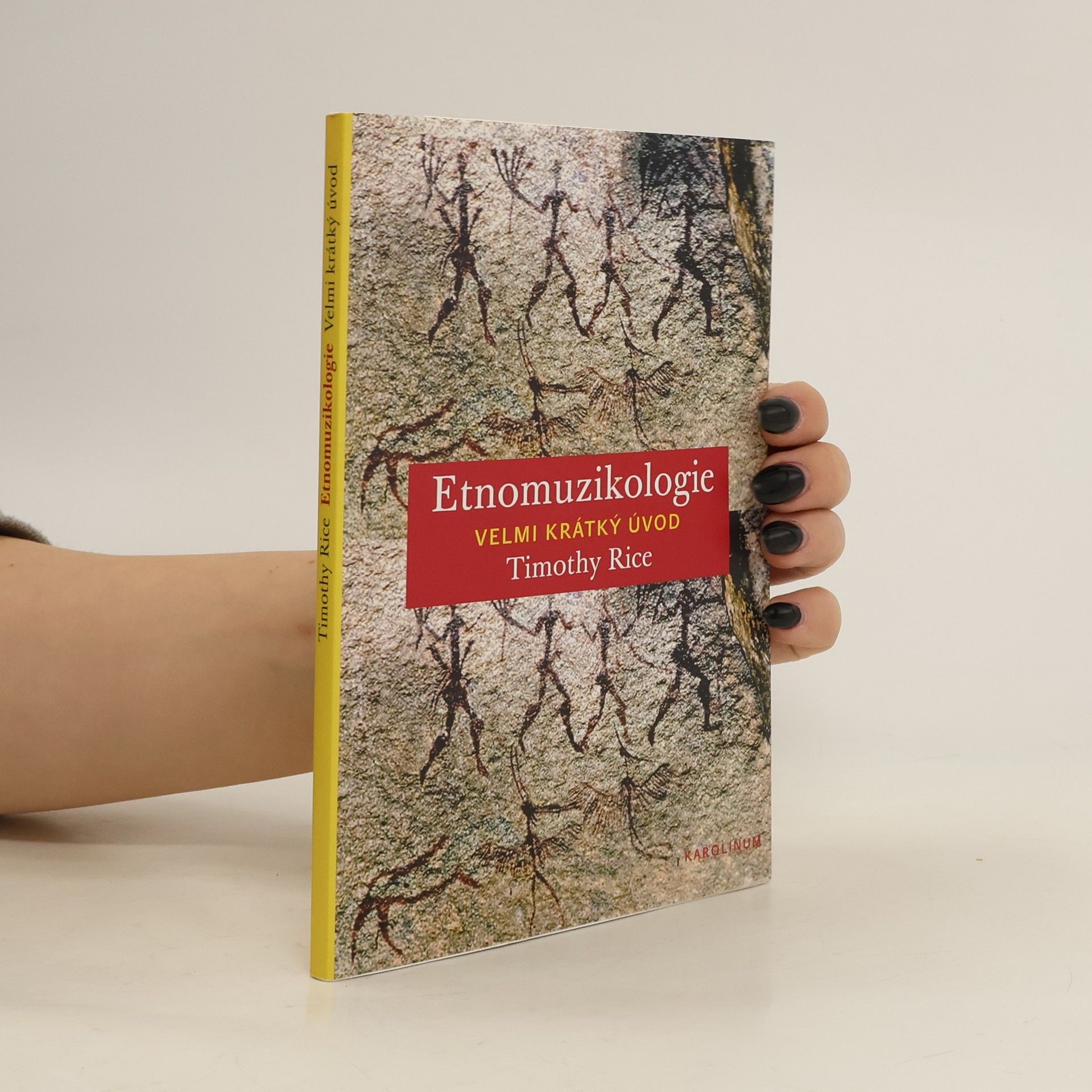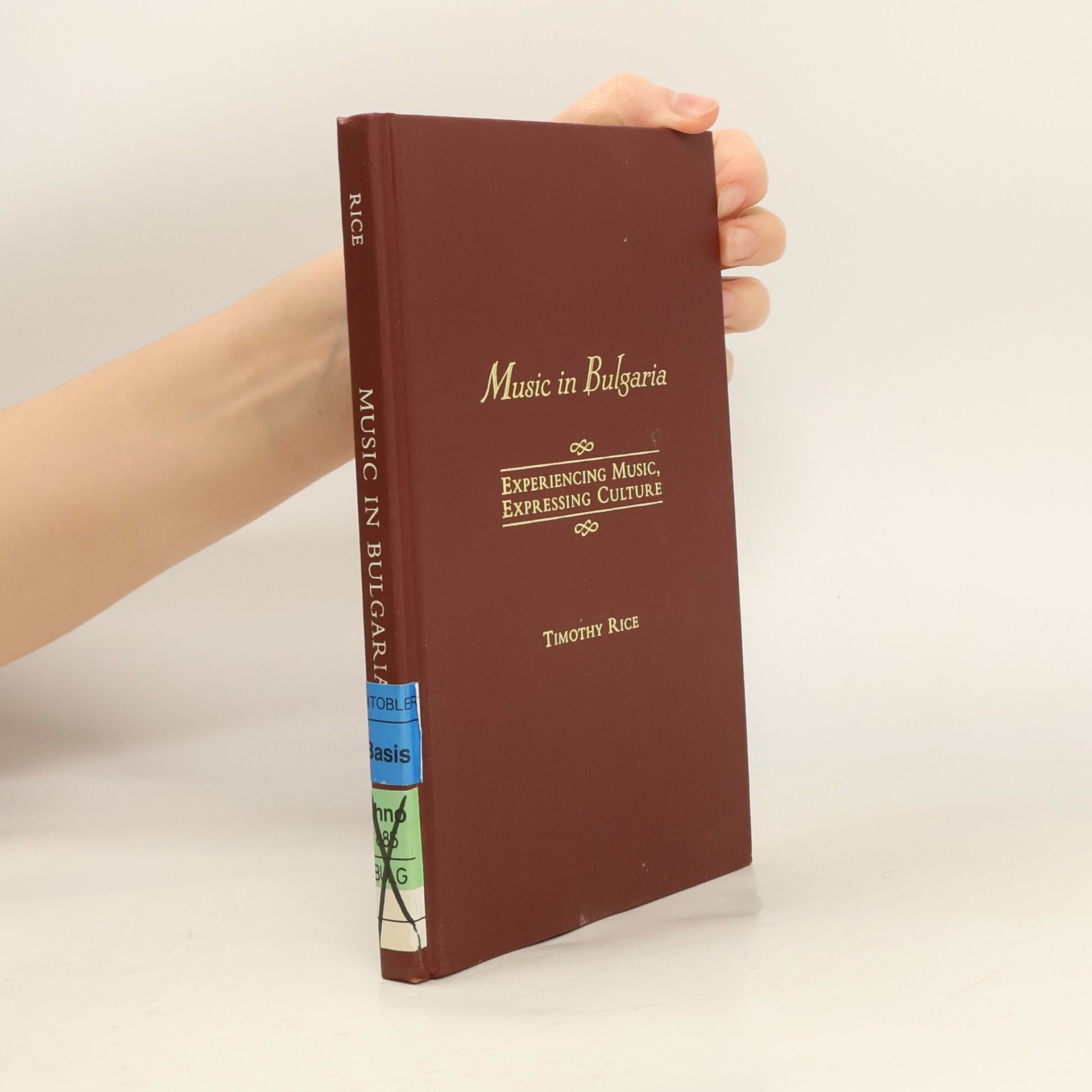This reference comprises Volume 8 in a 10-volume set that explores the music of the world. Rice (ethnomusicology, UCLA), James Porter (Scottish ethnology, U. of Aberdeen) and Chris Goertzen (music, Earlham College) offer 70-plus articles that cover music and its relation to dance, folklore, poetry, religion, and history. Following a discussion of Europe as a musical area and what unifies and diversifies its many different cultural and geographic regions, they look at the history of music, musical performance, European ideas, gender, immigration, and ideology. They also address traditional musical instruments, the transmission of music between generations, and popular, rock, and world musics. Finally, they present the musical cultures country by country, including transnational ethnic groups that have greatly influenced European culture. Contains many b&w photos, as well as guides to publications, recordings, films, and videos.
Timothy Rice Libri
Timothy Rice è un esperto di spicco nella musica tradizionale dei Balcani, con un focus particolare sulle regioni slave della Bulgaria e della Macedonia. Il suo lavoro accademico come professore alla UCLA approfondisce gli studi etnomusicologici. Rice è dedito alla conservazione e all'analisi delle tradizioni musicali che plasmano l'identità culturale della regione. La sua ricerca offre spunti preziosi sulle intricate espressioni musicali e sul loro significato sociale.




Jesus Christ Superstar
Rock Oper
Global Music Series: Music in Bulgaria
Experiencing Music, Expressing Culture
- 119pagine
- 5 ore di lettura
Flourished despite the social changes brought about by the post-WWII era of industrialization, modernization, and urbanization.
Etnomuzikologie: Velmi krátký úvod
- 152pagine
- 6 ore di lettura
Všichni lidé, nejen hudebníci, jsou muzikální, a muzikálnost je základním kamenem lidské zkušenosti. Abychom plně porozuměli lidské hudebnosti, je nezbytné studovat hudbu v její geografické a historické rozmanitosti. Tento první český úvod do etnomuzikologie představuje, jak tento obor zkoumá fenomén hudby a lidské hudebnosti v různých kulturních, sociálních a historických kontextech. Zájem se netýká pouze tradiční hudby, ale zahrnuje i současné formy, včetně populární hudby. Autor ukazuje, jak se etnomuzikologové účastní hudebních událostí, zaznamenávají je a provádějí rozhovory s účastníky, přičemž se učí hudbu hrát, zpívat a tančit. Dále se dozvídáme, jak navázat důvěrný vztah s hudebními komunitami, analyzovat terénní data a interpretovat je pomocí teorií společenských a humanitních věd. Kniha také reflektuje zajímavé etnomuzikologické výzkumy z celého světa. Je určena studentům muzikologie, antropologie a etnologie, budoucím učitelům hudební výchovy a všem hudebníkům, kteří chtějí rozšířit své hudební obzory a porozumět hlouběji.